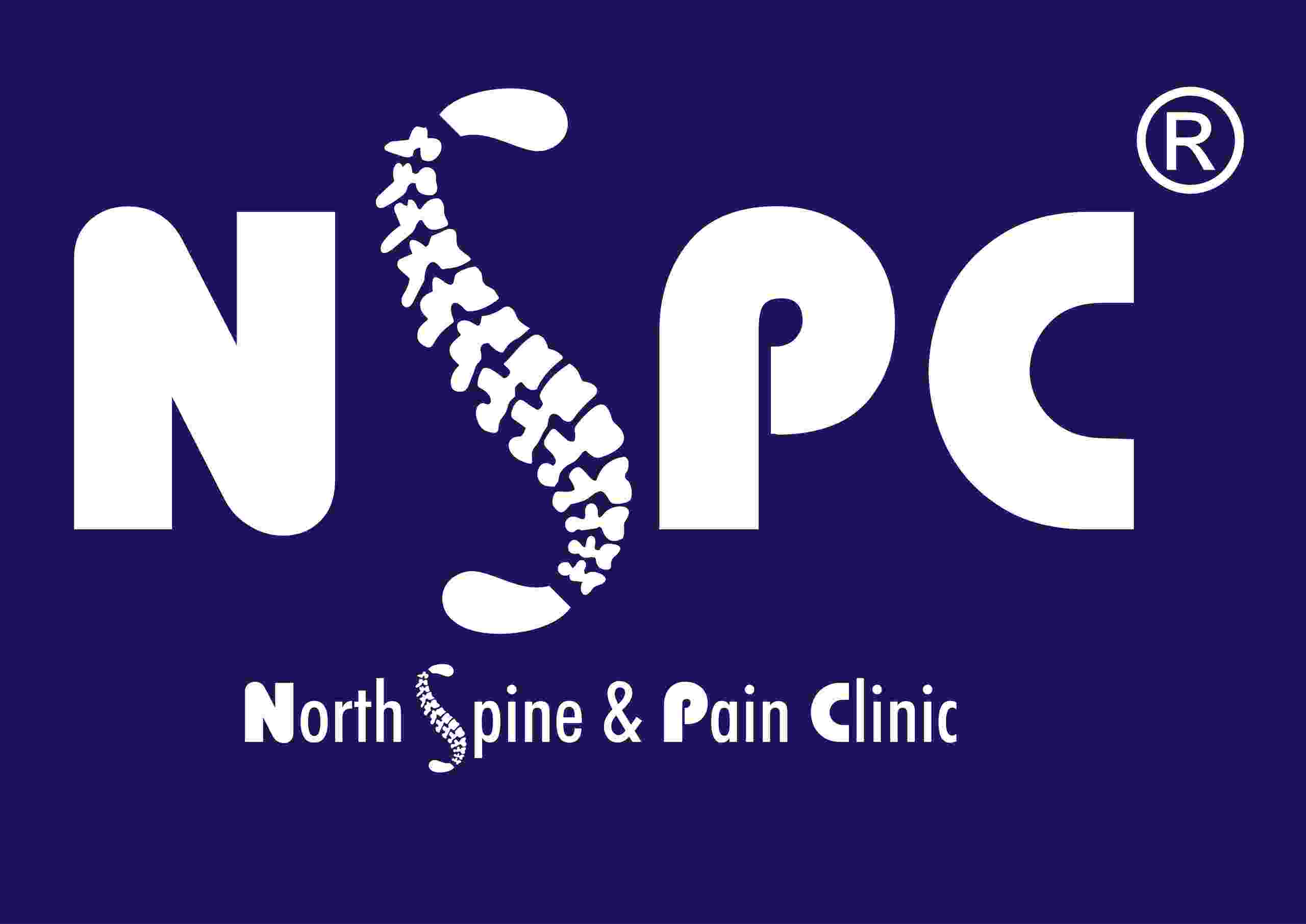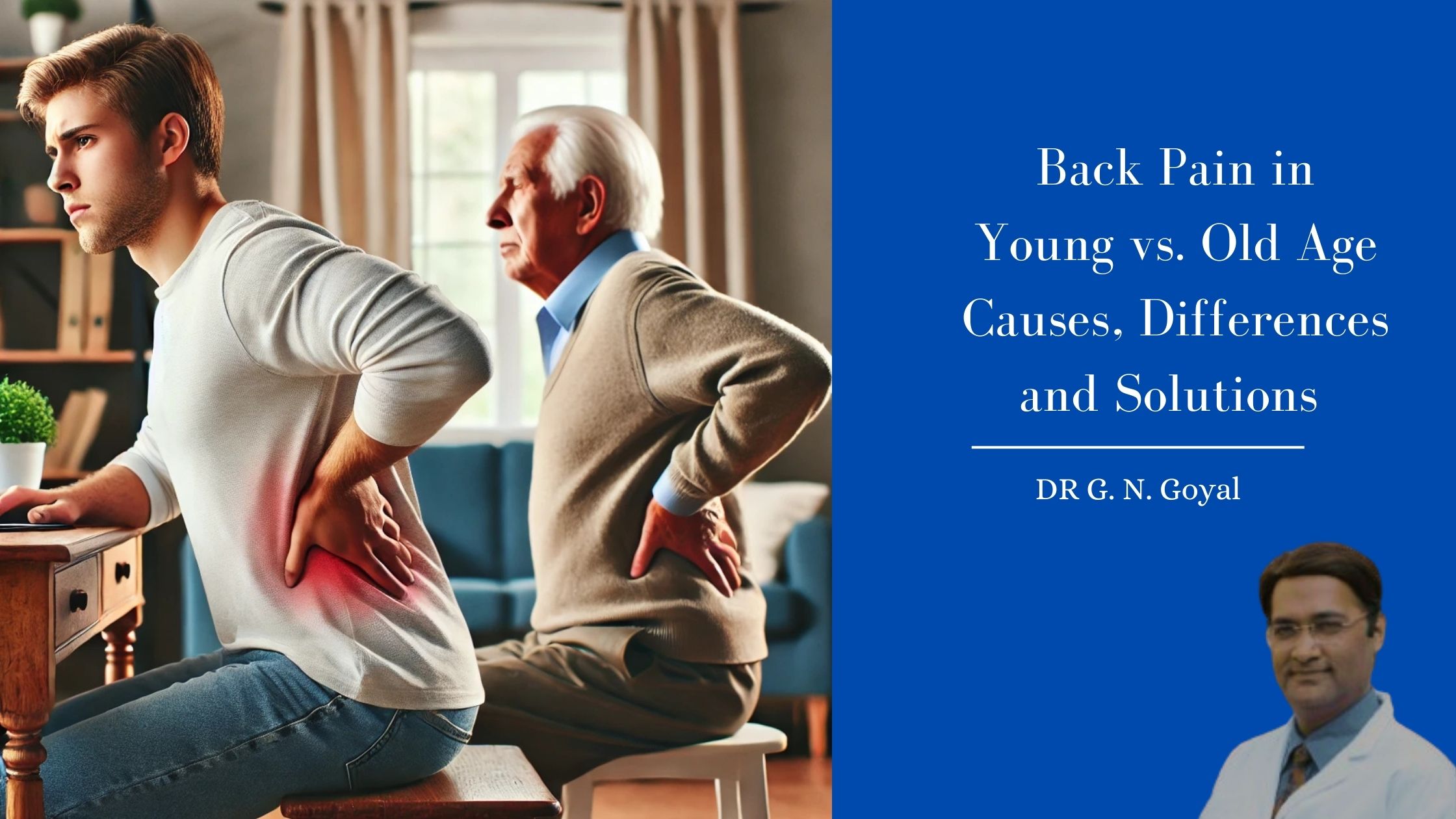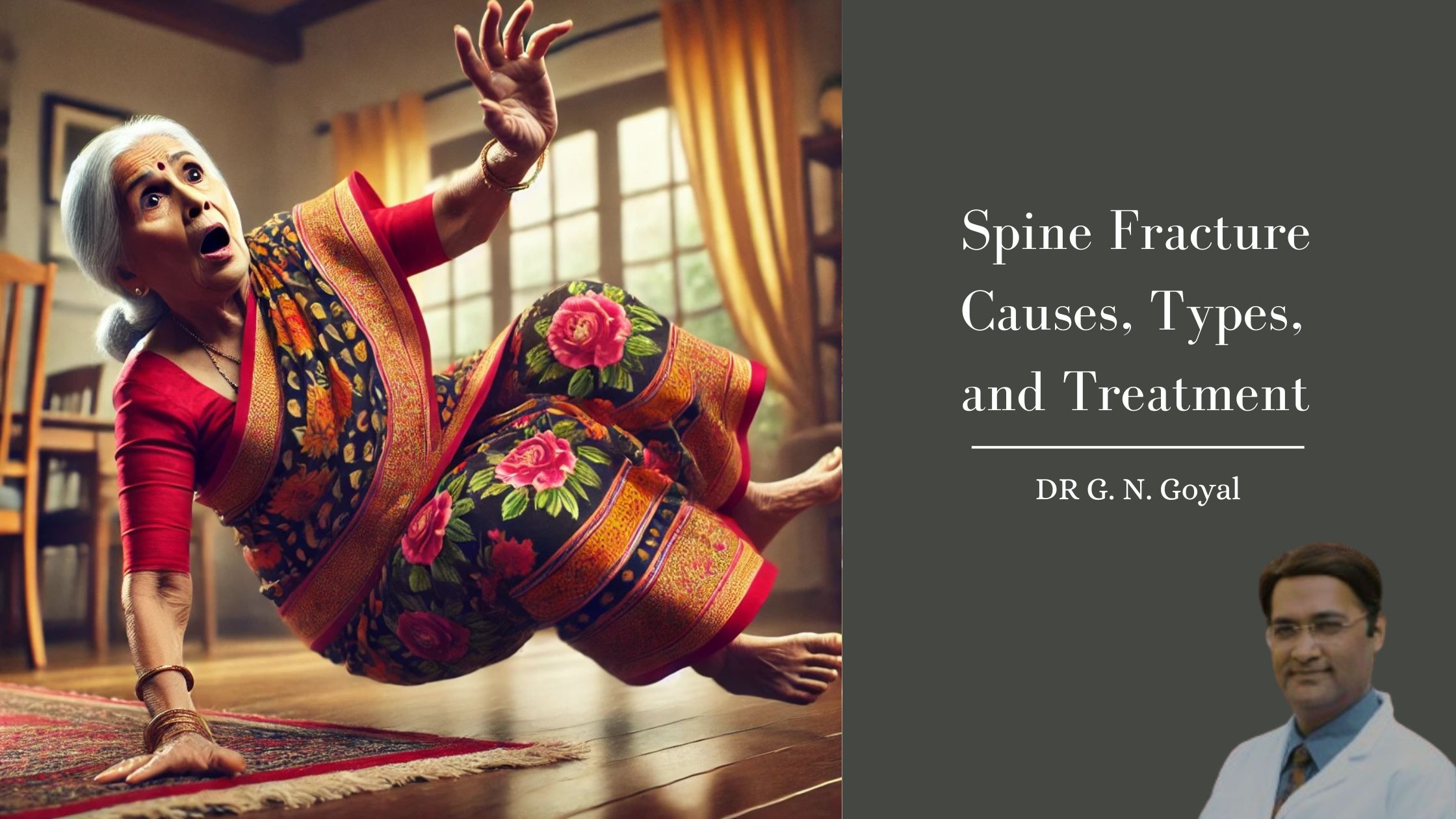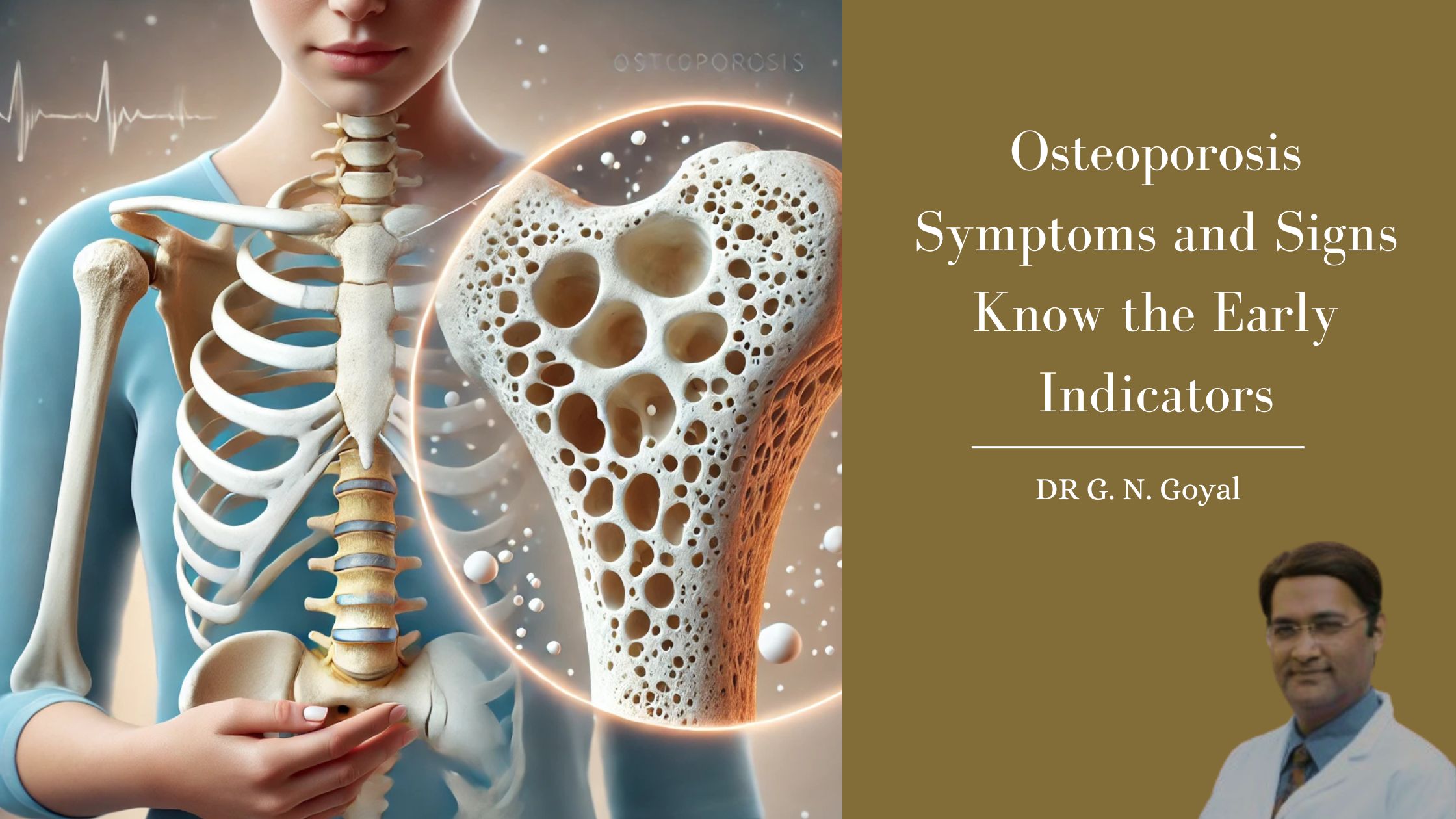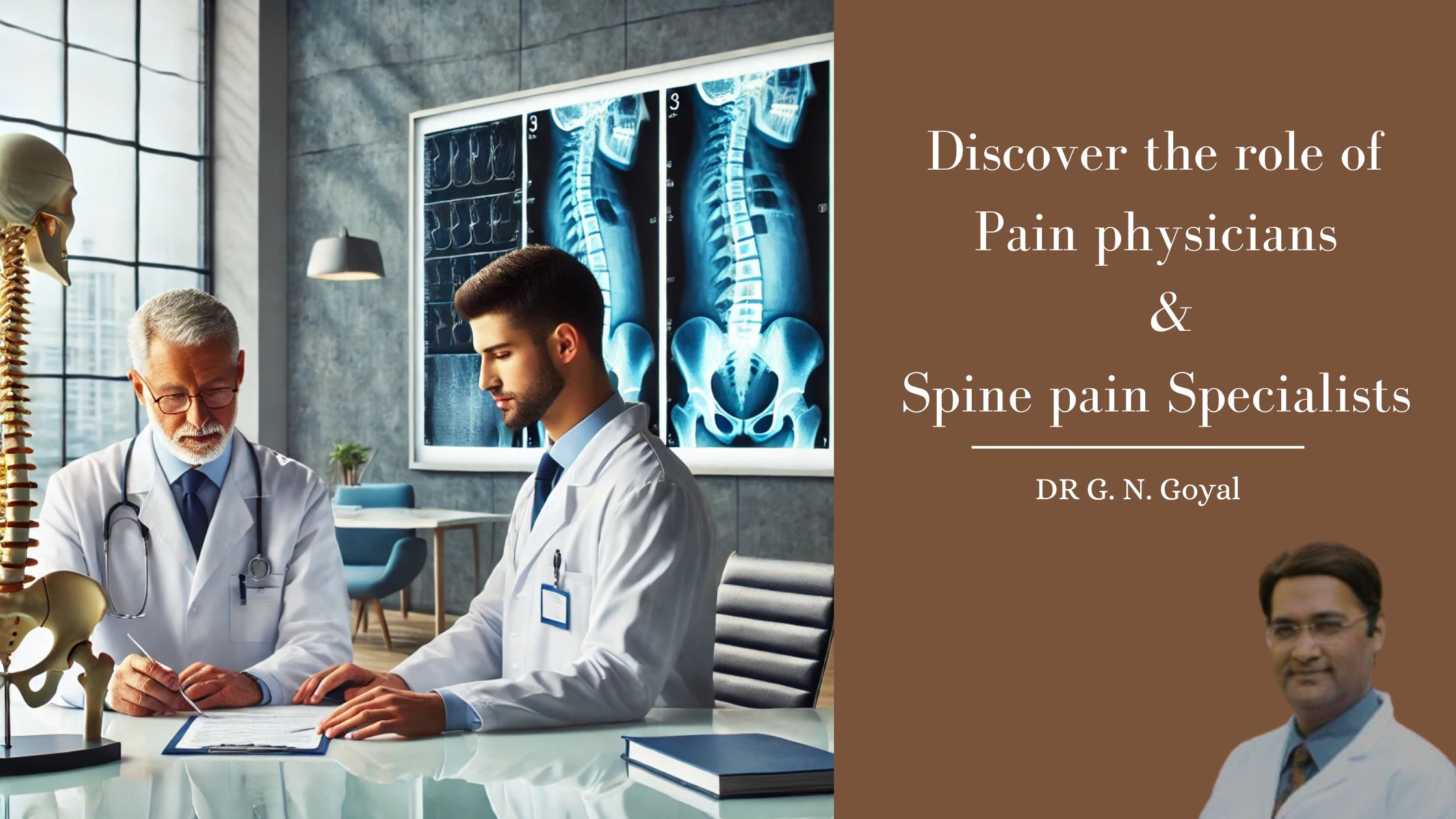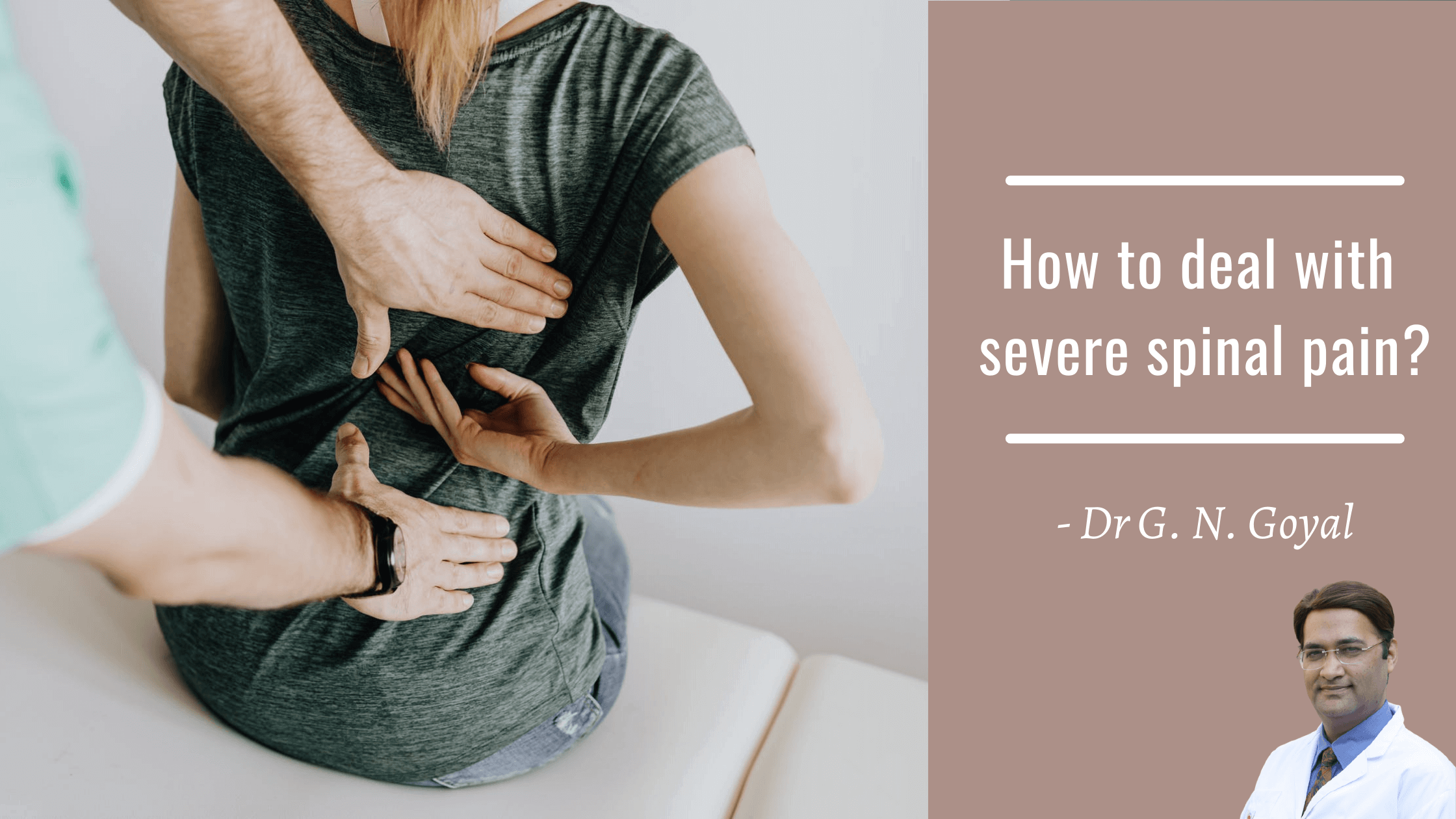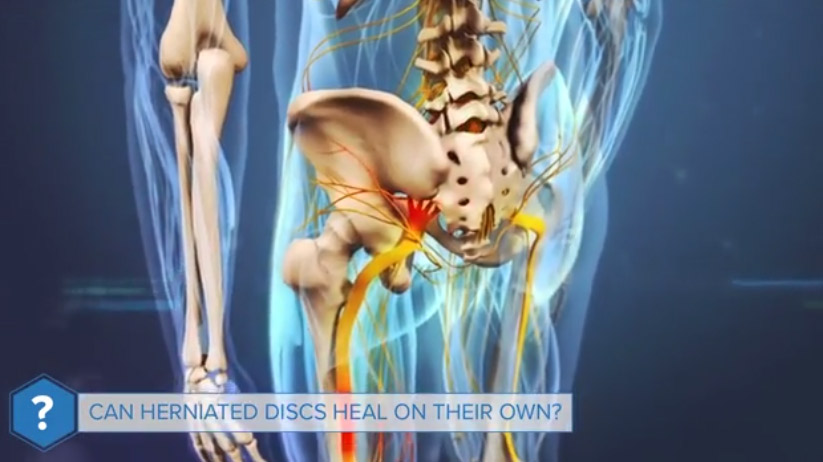Back Pain in Young vs. Old Age: Causes, Differences, and Solutions
Why Does Back Pain Differ in Young and Old Age?
Back pain is a common issue that affects people of all ages. Whether you are a young professional or a senior citizen, lower back pain can impact your daily life. However, the causes and treatment options for back pain vary depending on age. Let’s explore the key differences and find the best solutions.
Causes of Back Pain in Young Age or Middle Age
1. Sedentary Lifestyle – Sitting for long hours, especially for office work or studying, can lead to lower back pain.
2. Poor Posture – Incorrect sitting or standing posture puts extra strain on the spine, leading to back ache.
3. Heavy Lifting at the Gym – Lifting weights without proper technique can cause sudden back injuries.
4. Stress and Anxiety – Mental stress leads to muscle tension, which can contribute to back pain.
5. Lack of Exercise – Weak back muscles due to lack of physical activity increase the risk of lower back pain.
6. Small injuries or jerks
7. Road traffic accidents
8. Slipped Disc
9. Sciatica – It starts from lower back pain or as hip pain and runs down and behind the leg, upto ankle or toes, known as radiculopathy.
10. Tail Bone pain
Causes of Back Pain in Old Age
1. Degenerative Disc Disease – With age, spinal discs lose flexibility, leading to pain and discomfort.
2. Osteoporosis – Weak bones due to calcium deficiency make older adults prone to fractures and chronic back pain.
3. Arthritis – Joint inflammation can cause stiffness and pain in the lower back.
4. Spinal Stenosis – Narrowing of the spinal canal compresses nerves, leading to severe pain.
5. Lack of Mobility – Reduced movement and flexibility in old age make back pain more persistent.
6. Injuries inside home like fall in the bathroom or on the stairs, leading to compression fracture in the backbone.
7. Myofascial pain
Lower Back Pain for Women – A Special Concern
Women are more prone to lower back pain due to:
– Menstrual Cycle & Hormonal Changes – Fluctuations in hormones affect spinal muscles.
– Pregnancy & Post pregnancy Changes – Extra weight during pregnancy strains the lower back.
– Osteoporosis Risk – Women are more likely to suffer from weak bones, leading to back pain.
How to Treat Back Pain? (Expert Tips from a Back Pain Doctor)
For Young Age:
✔ Maintain Good Posture – Sit and stand correctly to reduce strain on your back.
✔ Regular Exercise – Strengthen core and back muscles with stretching and workouts.
✔ Take Breaks from Sitting – Move around every 30–40 minutes to avoid stiffness.
✔ Proper Weight Lifting Techniques – Lift with your legs, not your back, to prevent injuries.
✔ Consult a Back Ache Specialist – If pain persists for more than 4 – 6 weeks, seek expert medical advice.
For Old Age:
✔ Gentle Yoga & Physiotherapy – Improves flexibility and relieves pain.
✔ Calcium & Vitamin D Supplements – Essential for strong bones.
✔ Use a Supportive Mattress & Chair – Helps maintain spinal alignment.
✔ Consult a Back Ache Specialist – If pain persists for more than 4 – 6 weeks, seek expert medical advice.
Back pain is a common problem, but understanding the causes and differences in young vs. old age can help in effective treatment. If you or someone you know is struggling with persistent lower back pain, consult a back pain doctor or back ache specialist Dr G N Goyal, for the best care. Stay active, maintain a good posture, and take care of your spine for a pain-free life!
CONTACT US
You may please click on the following link, to know the pleasant experiences of our Back pain patients.
